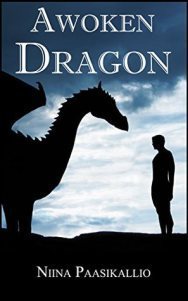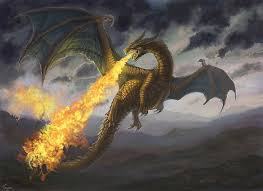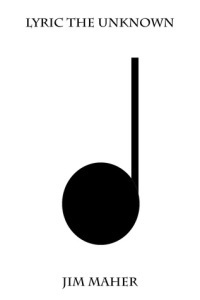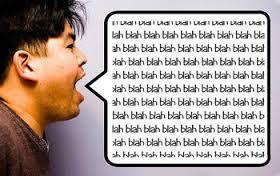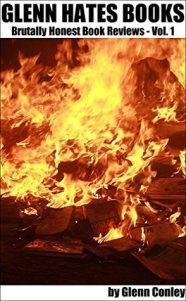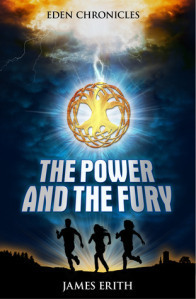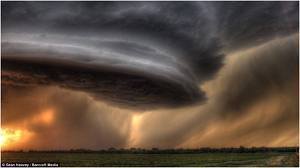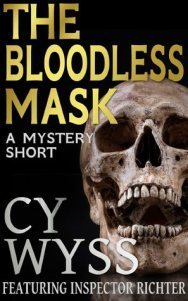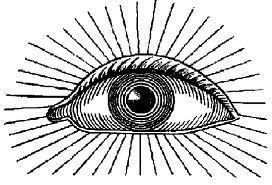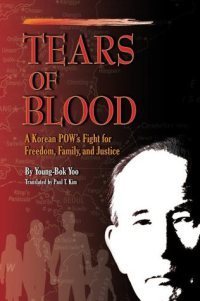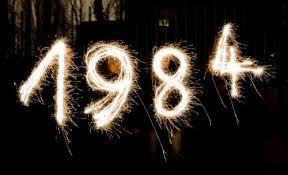Tim Learn's Blog, page 25
April 12, 2015
Awoken Dragon
Awoken Dragon
(Fantasy)
By Niina Paasikallio
Rating
Synopsis
At eighteen most teenagers have a lot to get used to. Ryan was no different. Everything was normal for him with a sister, Amanda, and two loving parents. But all of that changed one night when he was left alone. What came afterwards no teenager would ever be prepared for. He became a dragon.
Prose/Structure
Right away I was hit by the author’s writing. It was clear, detailed, and at times, long-winded. This may sound like a complaint, but it’s not. Long sentences with many modifiers and clauses are no problem, and I particularly enjoy them. In fact, I tend to write similarly. But, I know what complaints I’ve received about my writing, and I hope—as one author to another—she will be careful. Many out there are not of the same ilk or don’t have the same appreciation for it. One sentence uniquely exemplifies this:
He squinted his eyes and finally saw the door, taking a few unsure steps toward it.
Besides that, her premise is interesting and could have a lot of potential. The story and worlds she’s created are unique and she has enough characters for many future plots, but a lot of the faults may work against it.
First off is POV. The beginning of the story was the best for me mainly because we only see Ryan, so everything is painted in his perspective. However, as soon as Amanda, his sister, enters, the POV jumps back and forth. Ultimately, this creates the effect of being tossed around on a rollercoaster. Every time I get situated in one direction with one POV, I get jerked around, heading the opposite way. If this were under control the whole flow of the narrative would improve.
Second, the dialogue is weak if not nearly absent for most of the story. So much of this book happens in the character’s heads or in quick summaries of important discussions that most interactions are menial. Take only the dialogue from the beginning of Chapter Three:
“A dragon? Seriously?”
“That’s not possible.”
“You saw what happened. You remember this happened to you last night. Was that not possible?”
“It is true.”
“So he’s like…a real dragon.”
Sadly, this is how most of it plays out, despite my hopes for it being better.
I guess when it comes down to it: the real test of a book is whether or not the reader wants to skims. There are two reasons for this. One, the story is so riveting we want to find out what happens. Or two, the descriptions and wording and characters are so heavy-handed that we hope eventually something will happen. For me, this book was the latter.
Overall
Though my critique might sound bad, I obviously gave it a three-star rating. This is due to the fact that the writing wasn’t necessarily poor, but that the presentation was sorely in need of an overhaul. There were elements in the story that showed promise and seemed that with a little more time might shine more brightly. As it was, most of the side characters seemed flat, especially Ryan’s sister and Sor’Enia—though the latter became more interesting later on. In any case, a two-star book makes me cringe at its childish quality. I did not feel that here, rather, I was let down by the promise in the first chapter. I hope, if there is a sequel, the author kicks everything up a notch.
If interested, you can find the book here.
Or, check out the author’s website here.


April 7, 2015
Edit! Edit! Edit!
Edit! Edit! Edit!
(My Top Three Editing Requests)
I am not the type of person to break out the red pen or whip out a degrading comment in the sake of upholding the holy edict of grammar. Anyone with a halfway decent education should have perspective enough to know language—hey!—it changes, and so do the rules. Besides this, a grammarian’s guidebook is lacking style, creativity, and the natural disposition with which we speak. In other words, it’s prescriptive.
None of this bothers me. I care less and less about the way in which the words appear before me. Even bad spelling does little to my enjoyment of a book. If that were all it needed to dispel a book from the annals of literature, or just to kick it off your bookshelf, check out the last chapter of The Great Gatsby, and you’ll see Fitzgerald write this: ‘He told me I et like a hog once and I beat him for it.’ The character is not speaking in dialect. Mistakes happen so if you know someone that goes wild at bad grammar or misspelt words, send them a copy of Finnegan’s Wake and save us all.
What bothers me then?
Self-published books that haven’t seen an eye of revision except for the fine-toothed comb of a grammar-Nazi. The letter of the book does little if the spirit ain’t got crap! So here are my top three editing choices.
1) POV
All writers have problems with it, and quite possible fear hearing anyone mention it, but point of view (POV) is a serious problem. Whenever a scene opens, we—the reader—expect to follow a certain train of thought, a distinct way of thinking. This keeps cohesion and is broken when every other paragraph jumps into a different character’s psyche. Let’s look at an example.
Anton had no idea what to think. James just told him he was gay, but as far as Anton could think back, James had never seemed gay. Well, there were those times, when they were young, that James insisted on playing house and got too wrapped up in his role as wife. But, that was kid stuff. That wasn’t about liking a girl or another guy. It was games.
This didn’t make sense. He thought his friend would always have his back, and James was worried that Anton was distancing himself from him. He didn’t tell him that stuff because he was in love with Anton. He told it to, you know, be up front. Friends tell each other stuff. Honesty and that whole thing. Now, James was unsure if this was the best move or not.
Solution: Believe in the reader. We know what’s going on. In this situation, devote one section—a scene or two—to just Anton’s POV. Let us see what he’s thinking and feeling, have him react a bit to the news. Then after you’re finished filling out Anton’s feelings, put in a paragraph break or chapter break, and start a new scene from James’ POV in order to give us his perspective. When together, it just comes out jumbled.
Sidenote: Anytime there is a break between paragraphs, this is signaling a time shift or POV shift. You can do either or both. However, throwing in paragraph breaks and having neither is counter-productive and, overall, annoying to the reader. If it’s suspense you want, save these dramatic pauses for chapter endings. Your reader will thank you and, most likely, be impelled to dive into the next chapter without thinking. Win-win.
Furthermore, when picking a POV, it should be the most potent one. Don’t pick a side character, and when it is, he has to be important. Think Nick Carroway. On top of this, the POV is used not only to heighten the scene, but also to hide information in order to build suspense. When you are jumping freely from head to head, everything gets ruined and confusing. So…choose wisely.
2) Dialogue
I’ve already harped about my major dialogue annoyances before, but I can’t stress enough what good dialogue is. Again, I repeat myself by saying that, yes, all writers struggle with this. You are not alone, but that doesn’t mean you can skimp in this area. Dialogue is the meat and the action. As much fun as it is to see someone slice a zombie in half, if there is no real give-and-take between the characters, I’m throwing the book down. Look at Crime and Punishment. I don’t keep rereading it for the murder scene.
So what should you do?
In this case, it’s more like ‘what should you avoid?’ And here it is:
-Don’t present everyday conversation. Some authors think this makes their characters and their relationships look and feel real, which it does, but if we readers wanted real, we won’t pick up your book. We have it all around us. If you have a brother and sister bickering with each other, make it interesting; otherwise, I can just call up my brother, call him a jerk, tell him I hate him for getting better grades than me in middle school, and ultimately, have lived through each episode in your book. Give us characters who take things a step too far in either direction. Give us wow!
-Also, be careful with explanation. This rehashes the basic writing caveat: show, don’t tell. Many self-published writers I read dump all the explanation in long, descriptive paragraphs, leaving only a tiny morsel of bland, run-of-the-mill dialogue. It bores me to death. Instead, turn this boring explanatory paragraph into the exciting, riveting back-and-forth it should be. Why do you think at the beginning of Harry Potter, Harry doesn’t know everything about the magic world? It’s so that we can learn along with him, but not through dry paragraphs. Hagrid, Ron, or—most often—Hermione explain it to him, thus to us. It is much livelier and less dragging.
3) The Narrative
In the beginning, I had this problem too. I felt I had to spell everything out to the reader. I thought if I didn’t, they won’t figure out a thing, but, eventually, the ‘not-spelling-everything-out’ has become the fun part. Trying to figure out how I can make it harder, while still making it actively fun for the reader to know what is going on is riveting. For writers, this is what should keep them up at night.
Then what’s the problem? Writers that show everything but somehow expect this to build suspense or interest. In essence, the story is just out of order or needs some chopping. Look here.
Richie got up off the couch. His head was stinging and he had no idea why. He hadn’t had anything to drink, and even if he had, he rarely got headaches from alcohol. He stumbled to the kitchen for some aspirin when he heard a voice ring out in his head.
“Help me!” it said.
Richie shook his head and in that instant, fire started pouring out of his hands. He lifted them in front of his eyes. What was happening? Was this real?
The fire fell from his fingertips like a fountain, igniting the floor and cupboards. Even when he reached to turn the tap on, the curtains above the sink burst into flames. And then his headache exploded as the rest of his body lit up, and his eyes were covered in thick, black smoke.
The next morning, Richie woke up on the couch. He rubbed his head, staring at the TV. He must’ve fallen asleep again while watching Late Night. He rubbed his belly. It was definitely time to eat.
He rolled off the couch, catching himself on the coffee table and sauntered into the kitchen. Opening the door, he was shocked. His kitchen was a smoldering mess. Everything was charred beyond belief. And for the life of him, he couldn’t figure out how or why. Did a strange monster sneak into the house while he slept and destroyed his kitchen?
Solution: Cut it! If Richie doesn’t remember—NOR SHOULD WE! In this way, we go along for the ride. The author should be the only one who is totally omniscient. We lowly readers don’t have to know. In fact, most of the time, we prefer not to. In the end, it’s not the story that matters, but how you tell it.
End Comments:
So what does that leave for so many of these giant tomes created by self-published writers?
A LOT!
They wrote so much that these books of theirs are large. They have so much material to work with that if they take out a good scissors and start hacking and rewriting, soon their slow book will eat us alive. And that’s what I really want.


April 6, 2015
Lyric the Unknown
Lyric the Unknown
(Middle Grade)
By Jim Maher
Rating
Synopsis
Remember what a drain it was to sit down and practice your instrument for school? Well, Lyric does. Practicing her violin is a waste…until the world suddenly decides to roll over and come to an end on her. The only thing she has left now is her violin and everything that looks at her like a strange, unknown creature.
Prose/Structure
To start out, this book is written beautifully for its audience. Though the beginning seems weighed down by more similes than I’d like, soon it abandons this when by Chapter Four, the world ends. From this point on, we get a straightforward, but unique perspective of the world through Lyric’s strong and playful eyes. For example:
‘None of those amounted to a splat of pudding on the kitchen floor compared to number three.’
And this is where the story glows. Lyric is a sarcastic but cheerful character. Anyone else in her shoes would’ve crumbled after having lost their family and found themselves in a different world, but not Lyric.
In this way, you are sucked in and want to find out what is happening and how the world came to be in this new way. While reading, we are slowly filled in, seeing the new jobs and rigid structure this world was forced to create in order to survive, but the author keeps everything light. It never dabbles too long into the darker matters. I’ve heard some say this is a ‘dark book,’ but I don’t see it. Lyric keeps it light.
As for problems, one major itch that bothered me were the incessant need for characters to use each other’s names. Many times the two characters speaking are the only two in the room. Why they bother to call out their names is beyond on me. Even in the beginning, this is a problem.
Another problem the author might want to address is how the mother’s name turns out to be ‘Ma Bell.’ With the author being Canadian and all, you would think he’d be aware of the culture significance of ‘Ma Bell’ in relation to the nickname for the telephone monopoly held by The Bell Company and AT&T throughout the States and Canada. In this way, North Americans get a different feel for this kind-hearted matriarch. Then again, maybe it’s a tongue and cheek joke. Frankly, I’m not sure.
The last complaint is a simple one. The story ends too quickly…and abruptly. Though a book two is imminent, I really wished the ending had a more ‘finished’ feeling to it. That doesn’t mean it can’t be a cliffhanger, I just wanted a little more finality to it.
Overall
This is an awesome read! Lyric, herself, is unbelievably loveable and real. On top of this, the writer keeps things light—despite a possibly dark topic—and so interesting that you will want to jump ahead. I often had to hold myself back from skimming to see what would happen next. Though I felt the book’s ending was sudden, in no way does this ruin the book as a fun, quick read. It will grab your attention fast.
If you want to check out the book, click here.

March 30, 2015
My Top Three Binge Blogs
My Top Three Binge Blogs
To clarify, these are the writers I don’t visit on a daily or weekly basis. I only check them out once a month and then take in everything I’ve missed over the prior weeks. In all three, there is this hard-to-pinpoint factor that causes me to open multiple pages on my browser with different posts from their site. Hopefully, others agree as well.
My top three are in no particular order, but if forced, this guy would be at the top, and it’s easy to see why. His hatred for books has become a passion that explodes in every single review. But, where others may just bash books indiscriminately with blind malice, his anger is rooted in real life. Lodged in many of his reviews are personal anecdotes and points of view that—although sometimes best reserved for the over eighteen crowd—show a real person and opinion behind them.
Why Binge-worthy?: Reading his reviews, you feel like you should start one of those slow-claps from so many 80’s (or were they 90’s?) movies. He says what too many of us won’t say. He cuts the politeness and mannerly conduct we are used to. And, for some reason, I just like this guy. I can’t help but laugh or, shyly, agree with every word he writes. He’s also got a book out, collecting his best reviews.
Here, the title may be elusive. It looks like any other bibliophile’s blog to praise the selected golden authors of one blogger’s favorite genre. However, there is much more, specifically the page: Authors Behaving Badly. In this section, you find a detailed account of when certain authors flip out—over bad reviews or petty comments—and then unwisely take to the Internet to criticize readers while trying to exact some revenge along the way.
Why Binge-worthy?: Each account is heavily detailed. Most of the time, it provides the actual posts these flabbergasted and enraged authors have put out there. It’s like watching a car accident—you can tell instantly when things have gotten out of control and that there’s no turning back. Above all, you marvel at how anyone can be goaded into such a situation. In the end, any budding author should learn that, most of the time, it’s best to keep your mouth shut.
3) Helping Writers Become Authors
This site has hundreds of posts—usually succinct and very focused—on how to improve your writing. I’ve seen many other sites like this, but for some reason I always find myself returning to this one to discover something new and interesting. Although the author doesn’t have too many fiction books under her belt, her advice is sound and helpful. Quite often too, I find many examples in her posts that help illuminate what she’s expressing.
Why Binge-worthy?: This one is a bit different from the top two that—to be honest—bank their attention at the expense of others. This one is genuine, not to mention helpful. On top of that, there doesn’t seem to be so much fluff. Others that post these kinds of pieces weigh them down with a lot of useless hemming-and hawing. Here it’s clean and to the point. I appreciate that, especially when I have ten windows open with different posts by her. In that way, with a spare fifteen minutes, I can clean my browser off and be on to something else that is equally if not less productive.
Last Words
Check them out. I thoroughly recommend all three. Thanks!
Otherwise, please leave a comment telling me some of yours.

On Reviews
On Reviews
Yesterday, I got my first low review. It haunted me the whole next day, and what surprised me was that I didn’t expect it to do so.
I had gotten lower reviews and middling reviews before. They are expected, and for the most part, desired. A good product, whether book or vacuum, will have people that don’t find it to their preference or standard. That’s a given. And a well-rounded collection of reviews will allow potential buyers get a better picture and understanding. Desiring all perfect scores is unrealistic—check out The Great Gatsby and Harry Potter. Some even give these modern day classics one star. If that’s so, then why is does this particular review burn?
My other reviews have targeted many different aspects of my book.
-bad topic, but compellingly written
-poorly written, but interesting topic
-immoral and questionable issues (x2)
As you can see, people often disagree with clashing points of view. This is how reviews work. Nobody has the same tastes. I understand this.
Even those attacking the grammar are easy to swallow. You know who I’m talking about: that special breed of grammarian that explodes at every misused or absent comma. But they don’t bother me. If they bother you, I suggest you check out this awesome post. It’ll make you think differently.
The thing I didn’t expect—and maybe nobody does—is when someone makes a personal comment about you, one that attacks you as a person, and not the thing you created. I certainly didn’t. I can see the leap of logic this person made, but I’m still unsure how to react.
In this instance, I can fully understand why some authors and writers flip out. It’s one thing to undermine one’s work, but criticizing one’s life can be rough. But, I guess, that’s what this is all about. If you want to be a person who creates something, this will happen. I just needed a kick in the face to realize it.

March 24, 2015
My Top Three Pet Peeves in the Dialogue of Self-published Work
My Top Three Pet Peeves in the Dialogue of Self-published Work
Having read many self-published books recently, I’ve encountered three jarring habits among these authors that rip me right from my enjoyment of reading. To be honest, I have been guilty of them all as well at some point in my writing, and I hope to offer some advice to steer clear of these pitfalls. And so…
1a) Natural Dialogue
There are many facets to this dilemma so I’ll start out slow. First off, there seems to be a notion that all dialogue should sound realistic. I don’t know where this started or why anyone gives it credence. If you look at any of your favorite books, from Catcher in the Rye to Crime and Punishment, none of the speaking is natural. It is all highly scripted for full effect. I think where the confusion comes up is that dialogue should have a natural tone to it. Now, how is that different?
Well, let me first clarify what dialogue blows. Here is an example from a recent book I read.
“Hello,” his grandfather said.
“Hi,” he said from his bed, “How are you?”
“I’m good, but it looks like you’ve taken a beating.”
Or
“I don’t think it’ll work,” he said.
“Really? Why?” she asked.
Yes, this is the way we may speak—but no one wants to read it. The key point comes at the end when the grandfather starts talking about the beating. If so, why not start there.
As for the second example, it is not as bad as the first, but I wanted to show that even a useful prompt like ‘Why?’ can be blended into an action done by the character, thus making the scene more lively.
The worst offense of all is to use ellipses. (…) If it is not showing weakness in voice, ie. ‘I…I didn’t mean to kill him,’ then you are off-putting the reader. As in: ‘I was going to eat…what the?’ This is wrong on so many levels that the best advice is to just avoid it.
Solution: In this one instance, break the writing hallmark—Show, don’t tell—and just tell us. Change it from direct speech to reported. If not that, cut the intro stuff out.
After acknowledging one another, his grandfather leaned over with one eye half shut, and said, “Looks like you’ve taken a beating.”
Or
“I don’t think it’ll work,” he said.
She tilted her head as if to say ‘why?’
1b) Unnatural Dialogue
Moving on…when they say make it sound natural—whoever these ‘they’ are—they mean to have the language resemble our patterns of speech. Even though this blog post is structured with easily identifiable sentences, most of the time when we speak, we throw out key words that we assume our listener will insert. In other words, don’t write perfect sentences all the time for your characters to say. For example:
“You ate it?” she said, staring at him wide-eyed.
He smiled.
“Yeah. Had two of them.”
Here you can see the female did not use a proper question format. She should’ve said ‘Did you eat it?’ and the boy’s response should’ve been ‘Yeah. I had two of them.’ But in both cases, certain aspects were cut out to sound natural.
Solution: listen to how you and your friends speak. Even on TV, no one speaks one hundred percent clear sentences. The best way to fix this in your writing is the secret all writers should know: editing. Go back through your work and ask yourself, does this sound too perfect?
Sidenote: Be careful! Too many imperfect sentences will express to the reader that your characters are either nitwits or people who don’t know the language well, so avoid overuse of this phenomenon.
2) Boring Dialogue
Another problem: flat scenes with lackluster dialogue. So make it pop! Dialogue is the meat of the story. This is where readers enjoy themselves the most because we see the conflict unfold in front of our eyes. If it isn’t powerful or too wordy or too bland, your whole story will sink. Like all writing books say: there needs to be tension.
“There’s nothing to worry about,” the captain said, tossing a wrist in her direction.
“But there is. A large tropical storm is coming this way,” she shouted.
“I’m sure it’ll blow over.”
“All my data says otherwise,” she said, straining her voice.
“The weather channel seems to know nothing about this,” he added.
Although it may seem like something dramatic is happening here, the dialogue doesn’t show it. There’s nothing on the line and just by denying the claims of another doesn’t make us feel tension.
Solution: Like always, edit! The best way to catch these problems is to read your work, not with the words in mind, but with the push and pull between characters. If there is no hidden info or bad feelings between the two speaking, you might be looking at a problem. If so, trust your ‘quality’ instincts. Hopefully, you’ve developed some.
“There’s nothing to worry about,” the captain said tossing a wrist in her direction.
“Five thousands lives on a boat—are you say that’s nothing to worry about?” she snapped.
“Of course not. All I’m saying is that these storms come by all the time and cause little problems.”
She glared at him.
“All it takes is one time to be wrong,” she muttered.
3) Repetitive Dialogue
My last peeve is repetition. I too have had this problem. I believe it comes out of a desire to have the reader fully in the know, or I just get too caught up in my head that I don’t realize I’ve already hashed (and sometimes rehashed) certain information. Any dialogue, that is just a rerun of something before, will instantly feel dry and boring, and this will lose the reader’s attention. Following the example from above, if we were to jump two pages and read:
She ran to the second in command and said, “The storm is coming closer. We have to do something!”
“That?” he scoffed, “It’s some dark clouds. We see them all the time.”
She shook her head, frustrated and grabbed the CB from his hand to radio shore.
“This typhoon will hit us soon,” she shouted.
The CB sounded back, “All our data shows no reason for concern.”
Here we see the main character plea to two different sources after addressing the captain, and their responses are similar—do we really need a retelling of this information? By saying it again and again that no one wants to heed her warnings the suspense and tension are dashed. Repetition destroys story-telling.
Solution: The first thing to do is try cutting it. I know, I know, most authors despise this, but a good eye can tell if this is necessary or not. Sometimes trimming it can ramp up the plotting. However, if repetition is needed to show how the character is running into the same brick wall or the same type of response, the best way is to either internalize it by having the character express it in their head, or summarize it.
She couldn’t believe it. Everyone she spoke to had the same response. Maybe it was part of the job, part of having power over something bigger than they could understand that made them dismiss warnings, or maybe, it was just negligence. Either way, she knew her effort was being wasted.
Or
After the captain, she tried the second in command and even radioed ashore. In the end, she found no receptive ears for her warning. The storm was going to hit and their boat was going to be unprepared.
All in all, there is nothing wrong if you find some writing like this in your story. Just hopefully, with some crude editing, it’ll be cut or re-sharpened into something a little more poignant and sparkling. Truth be told, I can’t think of any dialogue that doesn’t start out poor and doesn’t get an awesome makeover after some serious editing. Get your red pens out!

March 23, 2015
Glenn Hates Books (Book Review)
Glenn Hates Books
(Brutally Honest Book Reviews Vol.1)
(Reviews)
By Glenn Conley
Rating
Synopsis
Glenn hates books. The title tells it all. He was not a fan of reading or writing or school for that matter when he was younger—as his blog proclaims—but somehow, he does an awful a lot now. And he holds nothing back.
Prose/Structure
It’s a book compiling blog posts from this guy, Glenn’s, blog. Nothing more, nothing less. So to comment about structure would be a little ridiculous, but he does have his own style and format.
Usually, he starts each review with his own ‘rating system’ based off five stars as in:
‘2 of 5 Puny Human Stars’
or
‘3 of 5 Whiney-Ass-Bitch Stars’
I hope you get the gist, as these were the cleaner ones.
He then launches into a tirade either for or against a book (usually against) ripping it to shreds with occasional digressions into his personal background just so we’ll all know exactly where this specific book-hatred is spewing from. And of course, he does in his own style.
‘This book is amazing in its effort to suck donkey balls.’
Or
‘This book is just a really bad Law & Order episode. And I fucking hate Law & Order. Can’t stand that stupid show.’
Now you may ask, why this book is worthwhile reading—it’s a book of reviews after all. Well, that’s were it is interesting. When I check out a book on any website, I instantly skip the gushing five stars. If there are only five stars, I know every family member and friend has read the book. All five stars is code for crap.
That’s why I dive into the one star and four star reviews. They give you perspective. And Glenn here’s got a lot of it. So much so, that when you finally hit his small, but elite five star books, you realized two things: one) Glenn has a particular taste in his reading which may or may not match your own; and two) there must be something here if these books were able to escape his wrath.
Personally, I found one new author, Ned Vizzini, because of this book. If you can walk away with that much, than it can’t be that bad.
Overall
Besides a wide arrange of books, Glenn’s reviews remind me most of those wonderful moments on American Idol when Simon Cowell shreds apart those ridiculous contestants that try to measure up to an impossible standard. In other words, these books take a beating, and who doesn’t like that. Why a four star review? Easy. It’s a book reviewing books. But an entertaining one at that.
If you want to learn more about this book, click here.
If you actually want to learn more about the author and his blog (be forewarned), click here.

March 17, 2015
The Power and the Fury
The Power and the Fury
(The Eden Chronicles)
(Kid’s Lit)
By James Erith
Rating
Synopsis
Three kids are sucked into Biblical destruction as forty days and nights of rain threaten a rural town in England. These children are destined to greatness but first must make it through a harrowing adventure.
Prose/Structure
This is James Erith’s debut—a book to kick off a five part series. The second one is due out this April. Unfortunately, with his first book, there are many problems dealing with plot and characters.
To begin with, nothing really happens of any interest until we finally get to see things through the eyes of a dreamweaver—spider like creatures that give us our dreams, some of which are prophetic. Otherwise, he begins his tale haphazardly as if to introduce not only the characters but the beautiful scenery where it all goes down. I’m sure his intentions were good, wanting to share something idyllic and quite possibly lost nowadays, but ultimately that is the key here. Stories don’t flow like this anymore. Books are written with action in mind and none of that starts until much, much later.
Another flaw that hampers this story is the constant repetition. Every characters thoughts and actions are either repeated over and over in similar scenes, or echoed in the speeches given by others. For instance, the big, impending storm that will tear this town asunder is mentioned frustratingly by Isabella (one of the main three De Lowe kids) every chance she gets, only to be shunned and ridiculed. Clearly, this is to build up tension; however, we get every little conversation and word with each and every person who disagrees with her. We hear the same argument ad nauseum. Once is enough, to be followed by a summary of the rest, but that’s not how this story pans out
Another problem that seemed to correct itself about a fourth way through were the P.O.V. shifts. Many times we start in one person’s head only to jump to another. One scene the jumps out at me is at the daily announcements for the school, the headmaster thinks to himself about the students before him, before giving a speech about appearance. Then, we see a brief line or two from inside Archie’s head (another De Lowe kid) about his discomfort with this, and then, in we go again to the headmaster’s. Although, this problem resolved itself eventually, in the beginning it was rather jarring.
Later on, after having met a slew of characters, I was able to begin anticipating where I wanted the plot to go. However, at this point, I noticed some of these characters were slightly repeated forms of others characters, in particular, Sue. She is Isabella’s best friend who seems to get prophetic dreams as much as the De Lowes, and echoes everything Isabella does, becoming only a separate identity when Isabella starts acting severely out of character.
The one redeeming part and character is Cain. Somehow, whenever Cain appears the writing, character depiction, and dialogue are raised to a higher standard. Most of the time, I found myself desiring more of him and less of the De Lowes who are supposed to be the heroes, but act as unwitting dupes. I know kids like this exist, but as for protagonists in books, I want more.
I’d have to also say that another redeeming part is the bang-up cover and design. It is well done and only makes you want to hope for more on the inside.
Overall
What James Erith has set out to do is difficult. He’s imagining a large epic to update the holes in what happened after the Bible’s creation story and, possibly, to inform a new generation of things that were once quite commonplace. His ambition is admirable, but for the first book here, he should have done a rewrite, cutting and trimming. The book is an immense size and the old adage ‘Write and then cut 20%’ definitely is something he could implement to enrich, tighten, and, hopefully, bring about a more compelling tale.
You can check the book out, here.
And learn more about the author, here.

March 15, 2015
The Bloodless Mask
The Bloodless Mask
(Inspector Lukas Ricther Book 2)
(Mystery / Crime)
By Cy Wyss
Rating
Synopsis
A headless body is found in San Francisco bay, starting a crime investigation into the murky depths of human trafficking and Spanish lore that only Inspector Lukas Ricther and his mystical eye can solve.
Prose/Structure
What hits you right away with this story is the gritty, terse writing. The author wastes no time on florid descriptions of character or scene, giving us only quick snapshots of where and who before jumping right into the action. However, in no way does this mean there aren’t some great lines.
“The brightening effect of blinding daylight was tempered by omnipresent wire mesh and vicious balcony spikes.”
Or
“Itokawa had noticed he turtled around short people, dipping his head in silent acknowledgement of those not so physically fortunate.”
For a murder mystery, the vocabulary in this book was outstanding, slipping in SAT words with ease so well that most of the time even I didn’t notice them—the true mark of good writing.
As for structure, the author doesn’t deviate from being unique. While the main story revolves around the death of a twelve-year-old girl, the pin that holds it together is Inspector Richter. And as this piece is written in a third-person limited viewpoint—jumping only into the head of one character per scene—the most interesting thing was we never are allowed inside this unusal inspector with the magic eye. We are only given outside description from looker-ons, whether witnesses, partners, or the criminals themselves.
And clearly, he is the main point. This story wouldn’t be a story without Richter. He brings a distinct feeling unlike other stock detective characters you would expect. He is well educated, but not erudite to a fault. He is withdrawn, but in no way socially inept, many times joking around with his fellow cops. If it weren’t for him, I would’ve dropped this story in an instant. Though the other characters are well formed, he is the star.
Yet, this book was missing something. Clearly, it is short so by the end you are wishing there was more, especially after he so masterly runs down the bad guy. The part I think was the biggest letdown dealt with the Spanish myths the author delved into regarding how if a person wears the face of a dead person you become them. It would’ve been interesting to see this expanded upon instead up just offered up as an interesting tidbit from another culture. Already, Richter has a magic eye, so a little more oddity wouldn’t have hurt the story at all and was actually quite intriguing.
Overall
This book was a fun, quick read. Inspector Richter makes every scene he’s in different from a usual crime drama, never making it feel formulaic or done before. If you like mysteries with strong interactions between characters, this book is chock full of them. My only complaint, besides wanting it longer, is that I wish it took things a little further into the strange cult / mythos the author served up in the story. Wearing someone’s face to become them would make some interesting scenes. Nonetheless, have fun with it!
If you want to check out the book, click here.
If you’d like to learn more about the author, click here.

March 13, 2015
Tears of Blood
Tears of Blood
(A Korean POW’s fight for Freedom, Family, and Justice)
(Autobiography/Translated)
By Young-bok Yoo / Translated by Paul T. Kim
Rating
Blog Note:
I usually try to only review and rate self-published books to get more awareness for them out there, but after reading this, despite having a standard publisher, I had hold onto it a little longer by giving it a review because I didn’t want to put it down quite yet.
Synopsis
A young Korean man is surprised by the sudden invasion from the North only to eventually find himself as a POW. After the UN forces agreed treaty and POW exchange, he realizes that him and around another 80,000 South Korean soldiers are not returning to their home country. This is his true story of dashed hope and eventual return to South Korea after more than fifty years.
Prose/Structure
The writing style of this book is simple: confessional. In no way does it try to dart into higher, grandiose themes or propaganda-like verbiage. It is clear-cut as if the man who this happened to were sitting directly across from you. This makes it all the more poignant and hard to turn away from.
“If we wanted to survive, we had no choice but to follow orders. Those who rebelled or talked back would one day just disappear.”
Clearly, the translator too wanted to stick to this style, as it is hard to see where he interjects his rendering of the true author’s words. Though Young-bok was taken very earlier, being a late teen at the time war broke out, he speaks soulfully and honestly as if immensely wise.
Another endearing aspect is the way in which everything is chopped up into short chapters with a larger main idea to express. Each one tends to be nothing more than one key event in the progress of his life and his forced against his will suffering. In this way, the words fly by fast and makes you see clearly too how those lost years must feel to him now, like nothing more than flipped pages.
The most startling realization anyone might get from this book is the same that many have said about any book on the topic of North Korea. While reading, you cannot help but feel that somehow George Orwell was an oracle. This world that Young-bok lived in and which still exists today is right from the pages of 1984, despite the book being published two to five years before this country came to be. And Young-bok paints the picture so well that you understand fully why everyone follows suit with this ridiculousness: their lives are riddled with fear, every single second.
One of the final moments in the book, after his escape and return, he marvels over the advances in the South that most Northerns are completely unaware of. To them, South Korea and the rest of the world are poor. But too, he sees the political divisiveness in the South, and cannot understand how petty the world is at times, especially after what he lived through. If only all of us, at one point in our lives, could have our freedom taken away from us, then maybe we’d use it with a little more forethought and less ‘high-school’ bickering.
Overall
This book will kick you in the face. If you don’t walk away from it feeling shocked and angry at all the stupid things in the world, it is impossible to call you human. I know this book, personally, haunted me days after and even more so because it’s true and still happening. These soldiers were left behind and forgotten by their home country, most never seeing it again. The fact that something like this can happen is enough to ruin a few nights worth of sleep.
If you want to find out more about the book, click here.


